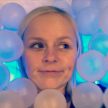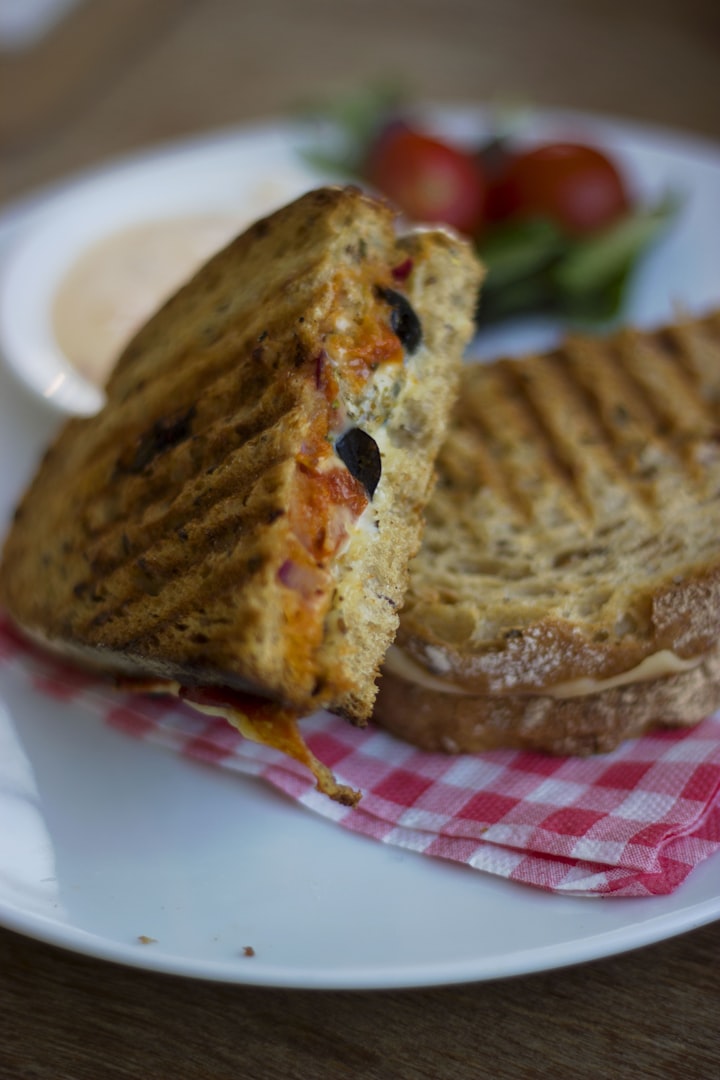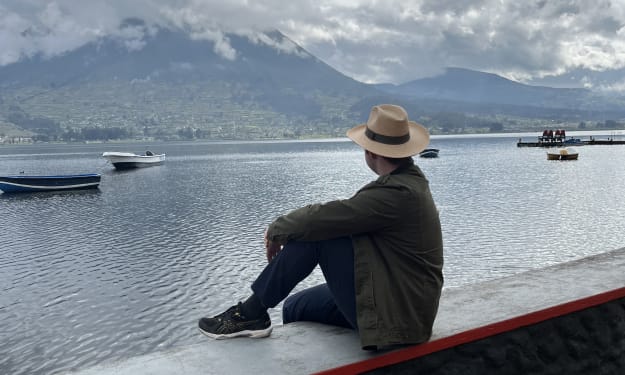The Adventures of Mr. Celery
Carrying only the essentials.

It flows from the source, yellow and hot, like a geyser. Against the dark behind it, it looks like fireworks. You can distinguish everything, every drop, the smoke rising from the molten rock as it falls down the side of the mountain.
You can’t take your eyes off of it as it splashes like a river, the flow increasing every minute.
I’ve been staring at it with my eyes wide, watching the lava in that strange sort of dance, without remembering what I’m looking at. The focus of the camera shifts, slightly, to what I was most afraid to see.
It reaches the trees next to our house, the forest I look into every day when I have my morning coffee, where I walk Apio after I come home from work. The river widens until it swallows the white walls of our home. Just a couple of minutes and it’s all gone.
I hear someone crying, and I know it’s Mom.
Yellow turning into red, into black, into stone. Making everything under it a part of the mountain.
“I hear it’s going to reach the sea soon, and there’s going to be a toxic cloud that could kill anybody who’s close by,” my cousin says. She’s seven, too young to understand why her excited tone makes my mother sob even louder.
I get up, leave the living room where we’re all congregated and head to the back. There’s an open wine bottle still on the table in the backyard where we had lunch, so I grab the closest glass and pour myself some. I need to get out of this place, my aunt Elisa’s house, but I have nowhere to go.
It’s better here, though. Back in the islands, it seemed like everywhere was filled with people like us, people who left their homes carrying only the essentials, not all of the essentials.
I was the one who found Sr. Apio and dragged him home from the cruel streets of Buenos Aires. I had just turned 17 and he was still a little puppy when I first spotted him tied to a light post next to the supermarket, but already his legs looked like celery stalks, long and lean little twigs finishing in paws that were three sizes too big. The rest of him so serious, with bushy eyebrows and wide eyes that seemed to transmit disapproval, like an old man. That’s why we gave him that name, Mr. Celery. I did, even before I was able to talk Mom into keeping him.
"We're not keeping it," she said when she found me in the bathroom, washing his paws, trying to comb through his messy fur.
“The only way I’ll move with you to Spain is if you let me take Apio,” I informed her. I knew I was going to win.
“Honey, it’s just for a year or two, until you’re old enough to live on your own. You’ll be back with your friends after that. But the dog is not coming.”
I never got back to my old friends in Buenos Aires, but Apio was with me all the way. After a year, I started university in Barcelona, where Dad’s company had sent us. When I finished, the whole family relocated to La Palma. I was in no hurry to move out on my own, especially since the family living arrangements kept improving. Because of our house, our big, beautiful house with a garden and a pool, on the foothills of an active volcano.
God, why were we so stupid?
Apio was huge and always looked scruffy and dirty, no matter how much I washed him. After long hours of internet sleuthing, I’d decided he probably had a bit of Irish wolfhound in him. The rest, street dogs of all varieties. He never left my side. He was loyal, but stupid. So stupid. Always running after birds, cars, even the rain. Maybe he’d run after the lava, try to catch the falling rocks like a kid tries to catch snowflakes on his tongue.
He was mine, Mom had made sure to tell me that. I was the one responsible for him. But we all loved Apio wagging his tail in the morning when we’d wake up or when we got home, whenever everything seemed to fall apart. We all needed him, and he was always with us. Except for now.
I lift the glass to my lips again, but the wine is finished. I need to get back inside the house but the weight of everything has glued me to my seat.
The door hinges creak, and I look up to see Gabi.
“I told you I’m sorry. We needed to get out, and I couldn’t find him anywhere.” Her tone still doesn't carry the needed regret. "You weren't there, either."
“And I heard you the first time.”
“It’s not okay to treat me like this,” she says, seating herself beside me on the steps.
“If you truly want to take responsibility for what you did, you need to say you’re sorry and not demand me to forgive you.” I don't look at her, and I know she hates it.
“Why?”
“Because that’s how you’re telling me I don’t have a right to be mad. And that means you didn’t really mean anything with your apology.”
Gabi sighs, letting her head fall between her hands. “As if I didn’t have enough with all this, losing our house and all my stuff.”
“I’m sorry, but I really don’t care about your stuff when you left my dog out there to die.” I get up, taking my wine glass with me to the kitchen.
Mom has recovered from her crying fit, and she’s now doing the dishes with aunt Elisa. I don’t want to talk to either of them, so I leave my glass on the counter and head straight to the door, grabbing my purse in the hallway on my way out.
It’s still warm, even though it’s almost October already, so I take off my coat as soon as I hit the street. The train station is full of people, most of them with their masks off. I still find it hard to breathe ever since we got here, but I keep my mask on.
An hour later I’m in my favorite spot, on a bench next to the Barceloneta beach. Some British tourists are grilling themselves on the sand, their red faces speaking both of an absence of sunscreen and a lack of control of their drinking. I had almost missed seeing them in the past year.
Hasn't it already been enough with the pandemic? Haven't we already had sufficient heartbreak, after losing so many of our loved ones? Maybe that's the worst part: the fact that nobody is going to be sorry for us. People have too much on their minds to feel bad for well-off people like my family.
The sea always calms me down, but this time it just takes me back to the toxic cloud, the lava that has devoured everything. I need to get back up and walk to distract myself from life.
Walking helps. I take my time strolling down the streets of Barcelona, savoring every moment. I had never expected to love it here, not like I loved the tree-lined streets of Belgrano, but Barcelona is so much more alive. People, food, music from all around the world. Every night there's a party somewhere, every day is a new chance to reinvent yourself. If you mess up and make yourself look like an idiot, the people are getting renewed next week, or next month. Nobody ever knows you, nobody cares.
My phone buzzes inside my purse, but I ignore it. It’s just going to be Mom, wanting to know where I am. Ever since we left the islands she’s been like that. I get it. There’s only so much loss you can take. That’s why she can’t take my silences, but her fussing only ends up driving me away.
I walk to the old part of town, down the medieval streets of Born, and treat myself to a couple of pintxos at a Basque restaurant, washing them down with a glass of txakoli. This is the place I brought my old friends Ayelen and Celeste when they came for a visit from Buenos Aires.
They loved it, the city and the food and the cheap beers at the beach. We had fun and we promised we’d keep in touch, much more than we had until then. Then they’d headed to the airport, and I’d gone back to my student life. And that was it, except for some birthday wishes on social media and likes on each other’s photos.
“There’s a three o’clock wind in this town,” I remember Ayelen complaining after roasting herself on Barceloneta for a week. “You can’t stay on the beach longer than that, because that wind shows up from the sea every day at the exact same time, and it’s freezing.”
I need some new air, and this city is helping me.
Maybe it’s about time to get back to Buenos Aires. See the city now, as an adult. I have nothing left in Spain. I haven’t had a job for a year and a half. I need a new start.
As soon as Dad joins us here, I decide. As soon as I’ve seen with my own eyes that he’s doing fine, and I get to talk to him about it. Our house. Our belongings. What they’re going to do. I do still care about others, even Gabi, even though I’m mad.
It’s already nighttime when I step out of the train, on my way back to aunt Elisa’s house. No lights are on, and I know Mom is going to be mad, but I’m glad I got some time alone to wipe away the toxic cloud from my brain.
When I put the key in the lock and twist it, I notice I’m hearing things. Maybe it’s the wine, maybe I’m just tired. My mind is playing tricks on me, the familiar soundtrack of Sr. Apio’s paws, the whooshing sound of his wagging tail. I can’t.
I step back from the door without opening it, and sit down on the steps overlooking the small suburban street. I let myself fall against the wall and allow the tears to drop, for the first time. I have no idea where I’m going next, what I’m supposed to do. I own nothing but the clothes on my back and a couple of t-shirts and jeans Mom was able to pack. I don’t know what I want to do with my life. Things have been steadily worsening, and I don’t know how to fix them.
I cry louder and louder, until I hear something familiar through my sobs. It’s whining. Is it me?
The door opens behind me and Apio jumps out and all over me. He’s got the smell of smoke still all over his scruffy fur, but he’s as excited as ever. He licks my face and lets out a couple of barks of joy.
“Shh,” another figure appears from behind the door. “Calm him down, will you? Everybody’s sleeping.”
“Dad?”
“Honey, is that you?” Dad stumbles out through the door and into the street light, looking about ten years older than when we’d left the island. He had stayed behind, helping get the business in order, helping our neighbors get settled, being there for everybody, as he always is. “Your mother has been so worried about you. Where did you go?”
“I was out. Where… How?”
“I wanted to surprise you. He had been wandering through town, and a neighbor spotted him and called me. He must have run away even before we evacuated the house, while you were outside. Dogs are smarter than we are,” he says, sitting down and putting his arm over my shoulder.
I lean on Dad, with Apio's head under my arm. I take a breath, the deepest I’ve taken in weeks.
About the Creator
Taru Anniina Liikanen
Finnish by birth, porteña at heart. Recovering political ghostwriter. Fiction, relationships, politics, bad puns, popular and unpopular opinions. Occasional dinosaurs, because dinosaurs are the best.
Enjoyed the story? Support the Creator.
Subscribe for free to receive all their stories in your feed. You could also pledge your support or give them a one-off tip, letting them know you appreciate their work.






Comments
There are no comments for this story
Be the first to respond and start the conversation.